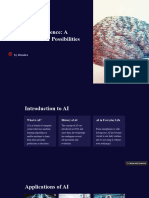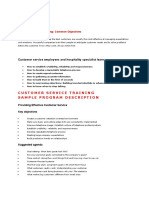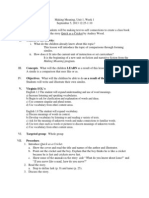0% found this document useful (0 votes)
40 views8 pagesAI: History, Concepts, and Future
Ai is power and future of our generation
Uploaded by
sahasranshumishra700Copyright
© © All Rights Reserved
We take content rights seriously. If you suspect this is your content, claim it here.
Available Formats
Download as PPTX, PDF, TXT or read online on Scribd
0% found this document useful (0 votes)
40 views8 pagesAI: History, Concepts, and Future
Ai is power and future of our generation
Uploaded by
sahasranshumishra700Copyright
© © All Rights Reserved
We take content rights seriously. If you suspect this is your content, claim it here.
Available Formats
Download as PPTX, PDF, TXT or read online on Scribd
/ 8























































































